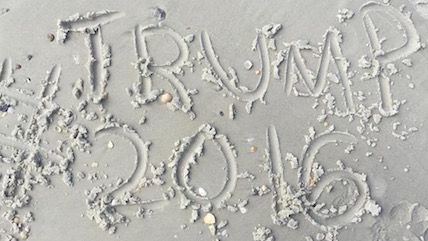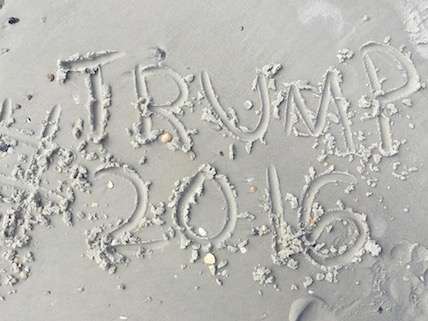After Emory: Will University Presidents Tell Thin-Skinned Students the Truth About Feelings?
"Trump 2016" is not an act of violence.


University presidents need to do the right thing and stop sheltering students from the harshness of the real world. So says Instapundit Glenn Reynolds in his latest USA Today column, which quotes Jesse Singal, Conor Friedersdorf, and me on "the chalking" at Emory University:
If I were to offer one piece of advice to university presidents, it would be to watch the scene from The Social Network in which Harvard President Larry Summers tells the Winklevoss twins to grow up and stop complaining about the actions of other students. "This action," says Summers, "the two of you being here, is wrong."
That's precisely the response that university presidents should give to students who come, claiming fear and trembling, to see university presidents because they're unhappy with the speech of other students. Instead, all too often, these students are indulged in a way that the Winklevoss twins were not, with consequences for the university, for higher education — and, actually for the complaining students themselves — that are likely to prove disastrous.
The latest example of this phenomenon can be found at Emory University in Atlanta.
Emory students, you might recall, thought chalk scribblings of "Trump 2016" constituted literal violence, even though the expression is clearly political speech. (In fairness, the perpetrator did violate the private university's rules on public displays, however.) Emory's president, James Wagner, offered only a tepid endorsement of free speech while doing everything in his power to assuage the hurt-feelings of protesters.
This is a mistake, writes Reynolds:
When students at Emory University — annual cost of attendance, $63,058 per year — act so foolishly , and worse, are indulged by those who are supposed to supply adult guidance, it gives the appearance that higher education is largely a waste of societal resources. That's not a good place to be, right now. University presidents, take note.
Full thing here.


Show Comments (59)